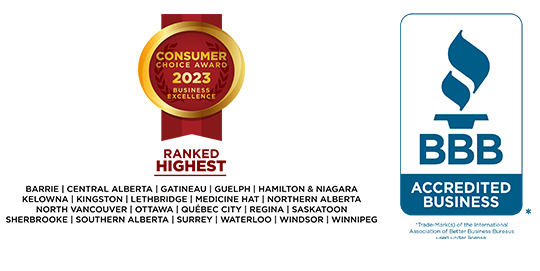How do I respond to creditors?
How often do you think about your debts? If you answered, “every day” to that question, then it’s time to contact your creditors and have a conversation.
Constantly worrying about your debt takes time away from your family, your friends, your work, and you. It affects your mental health by increasing your stress and anxiety levels, which – in turn – affects your physical health.
Before you contact your creditors, you should take a few minutes to prepare and the best way to do that is to be armed with all the information.

Here are the ABC’s of dealing with creditors and debt collectors:
What are your rights – Remember the three A’s
The realization that you are not going to be able to make a bill payment or meet the minimum payment on a credit card can be incredibly stressful. It can be even more stressful to receive phone calls, emails, and letters from your creditors day and night. Even though you owe money, that doesn’t mean that you do not have any rights.
Consumer rights vary across Canada with each individual province and territory outlining a specific set of rules for what debt collectors can and cannot do when contacting consumers for payment.
These rules are meant to protect consumers from harassment and other aggressive collection techniques, but this doesn’t mean that consumers are not required to fulfill their obligations and pay their debts.
Before you contact your creditors, familiarize yourself with debt collection rules for your province.
Here are some general rules that apply to most of the country:
All day, every day
Debt collectors can only phone consumers during specific hours. It’s important to know when your creditors are allowed to phone you. Check with your provincial consumer protection agency to find out which days creditors are allowed to phone you and during which hours. In Ontario, your creditors can contact you on Sundays between 1:00 PM and 5:00 PM. Monday through Saturday, your creditors can only contact you between 7:00 AM and 9:00 PM. They are not allowed to contact you on statutory holidays. Other provinces will have similar rules, but they may differ slightly.
Allowed to contact employer
Debt collectors are not allowed to continuously contact your employer to check your employment status. If you have provided your creditor with a personal phone number that also allows them to leave a voice message, then debt collectors are not allowed to phone consumers at their place of work. In Ontario, debtor collectors can only contact your employer once to confirm your employment status.
Abide by your request
Debt collectors are not allowed to phone consumers if they have made a request, in writing, to be contacted only in writing. Your provincial consumer protection branch should have a form that you can send your creditors requesting that they only contact you in writing. Keep detailed notes of all communication with your creditors. This better positions you for next steps and is a good way to remember any new agreements or arrangements made with your creditors.
Action to take
If a debt collector is not following the rules in your province, you can file a complaint with the consumer protection agency in your province. In Ontario, the consumer protection agency will review the complaint, determine if the debt collector has broken the rules, and respond to you within 15 business days (may vary by province). The registrar will determine the appropriate administrative action to take against the debt collector, which could result in a fine being levied against them.
When creditors contact you – Remember the four B’s
Be calm
It’s not unusual to feel stressed out or even embarrassed to receive a call from a debt collector. It’s a normal response to feel a bit anxious but remaining calm will prevent miscommunication and unnecessary stress. Remember that creditors and debt collectors are just doing their job which permits them to contact consumers and pursue payments.
Be informed
Before you pick up the phone, make sure that you have a good understanding of your current financial situation. Debt collectors are going to want to know when you plan to make your next payment and for what amount. They will also have their own expectations as to what they think you should pay and when. Having a keen sense of your current financial position will provide you with a comprehensive understanding of what you can reasonably manage.
Be proactive
Once you start receiving calls from debt collectors, answer the phone. They won’t stop calling if you ignore the calls. If you are receiving threatening letters from debt collectors, don’t throw them away. Read them fully and respond promptly to the debt collector’s request. If they are asking for a payment and you don’t think you will be able to meet their deadline, give them a call to discuss your options.
Be straightforward
Don’t beat around the bush. If there is something going on that is getting in the way of you making a payment (i.e., your income has been decreased because you are not able to work as much due to illness or if you have been laid off from work) explain your circumstances truthfully. Clearly communicate that you will not be able to meet your obligations and ask about next steps or options.
When you contact your creditors – Remember the four C’s
Communicate with creditors
Again, if you ignore communication from your creditors, they won’t simply go away. Start a conversation with your creditors about your current financial situation and discuss the options available to you that will allow both sides to move forward toward a compromise or resolution. Assisting creditors in understanding your financial situation increases the likelihood of finding a middle ground or workable plan.
Chart your course
Putting together an outline of your current financial situation will better prepare you to have a discussion with your creditors. Stick to the facts and be clear and concise about what you can and cannot accomplish based on your current financial situation.
Coordinate your documents
If you plan on contacting your creditors in writing, be sure to include relevant documentation to support your plan of attack. If you’ve written a letter, include relevant documents and a summary of your budget. Be sure to keep a copy of the documents and correspondence you send to your creditors.
Confidence is key
Open and honest communication is the best approach when dealing with creditors and debt collectors. Shying away from these types of conversations will only make matters worse and delaying these important discussions will only exacerbate the situation. You tend to have more options available if you deal with the issue right away instead of waiting for creditors to escalate your account.
Where to find out about your rights and responsibilities
Here is a list of resources to explore when you owe money:
Financial Consumer Agency of Canada
Consumer Protection Newfoundland and Labrador
Consumer Protection New Brunswick
Consumer Protection Bureau Quebec
Financial and Consumer Affairs Authority Saskatchewan
Consumer Protection British Columbia
Consumer Affairs Northwest Territories
When to Ask for Help
Being proactive, staying informed, and taking control of your financial situation is step one.
If you are not able to come to an agreement with your creditors on your own or you know that you will not be able to make your payments for a bit, step two is to contact your local Licensed Insolvency Trustee (LIT).
An LIT can help you review all the debt solutions and choose the best option for your unique situation — including Consumer Proposals and Bankruptcy. Together, we can help you achieve a debt-free future.
Visit our page to learn more about your options.

